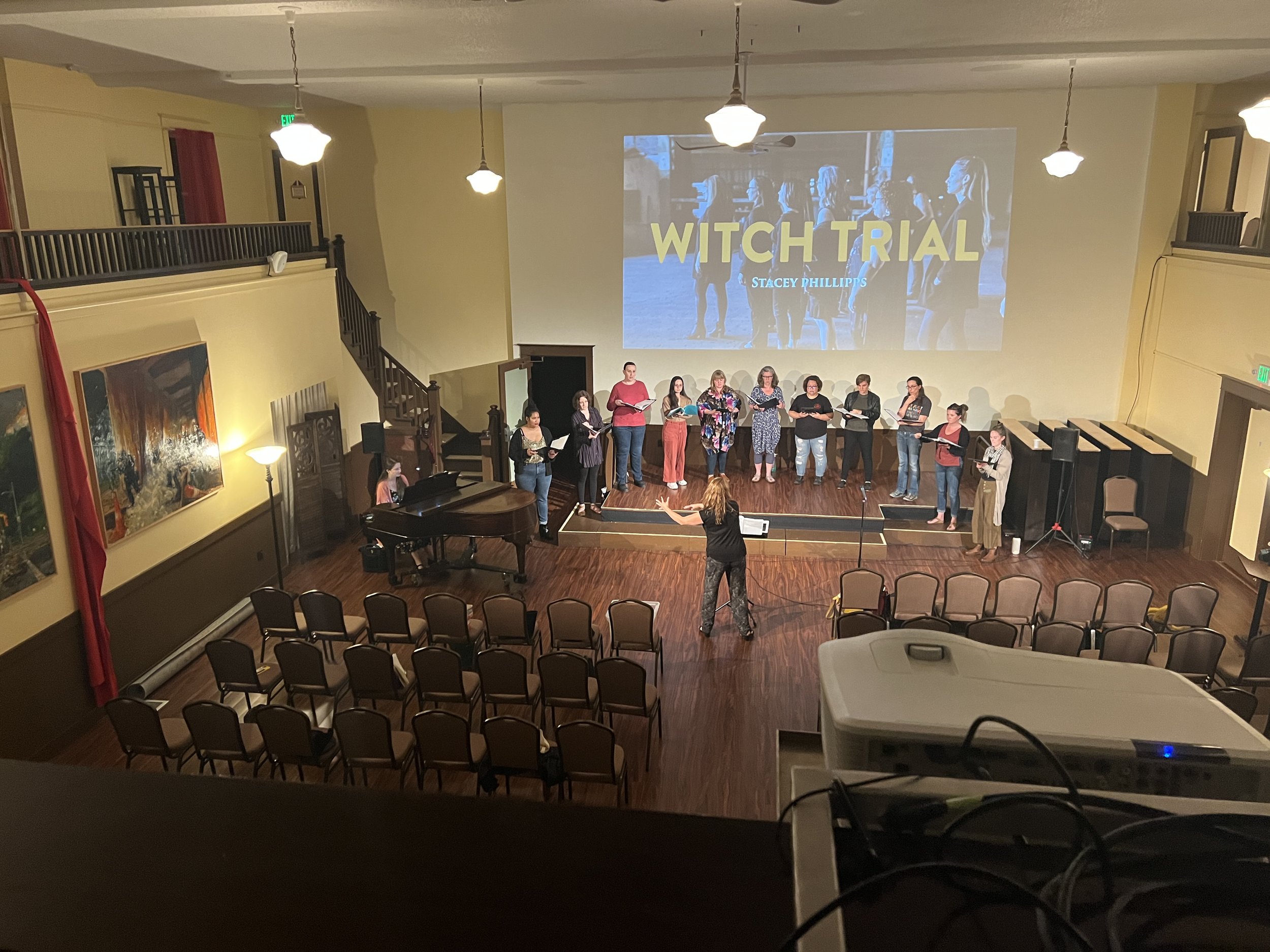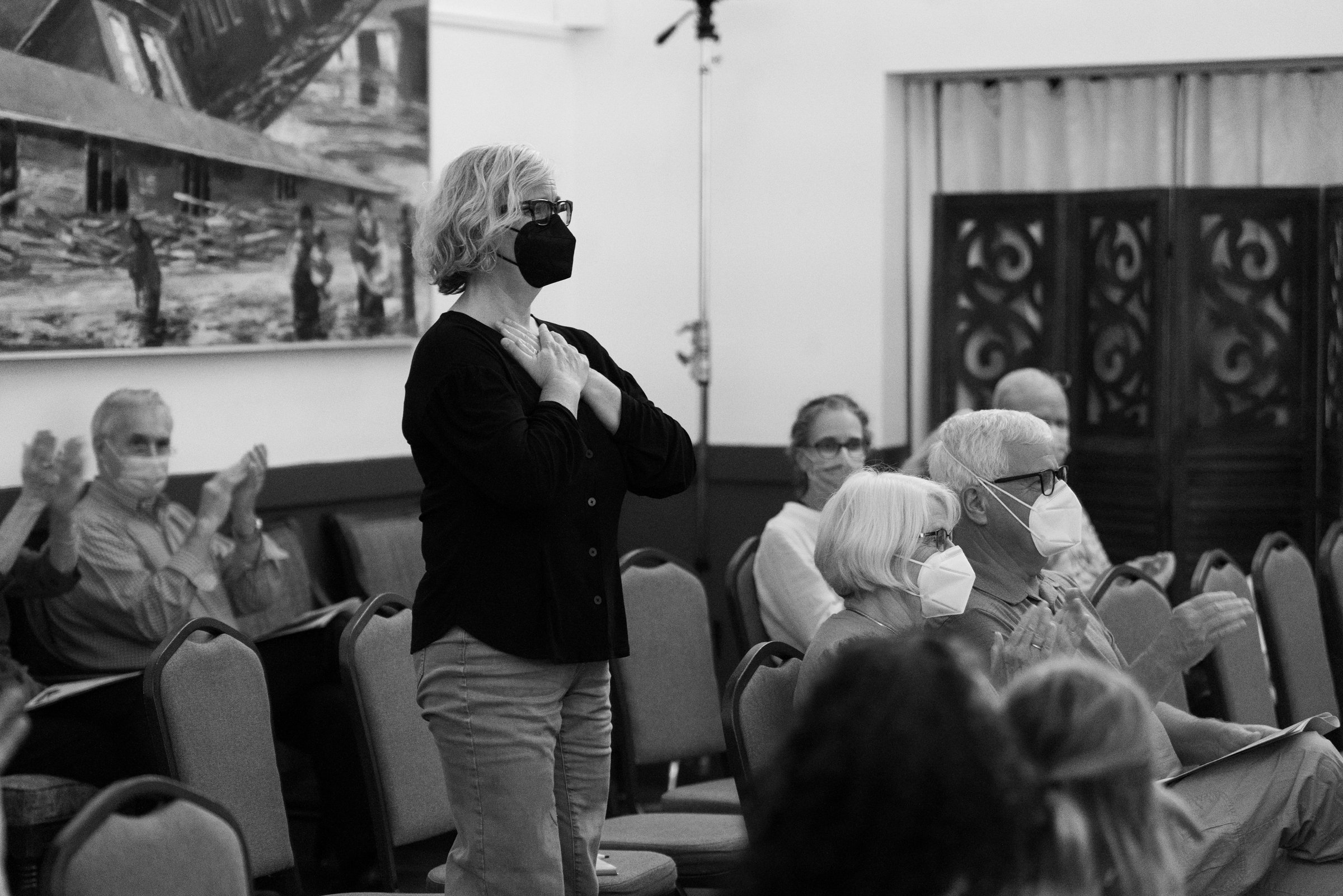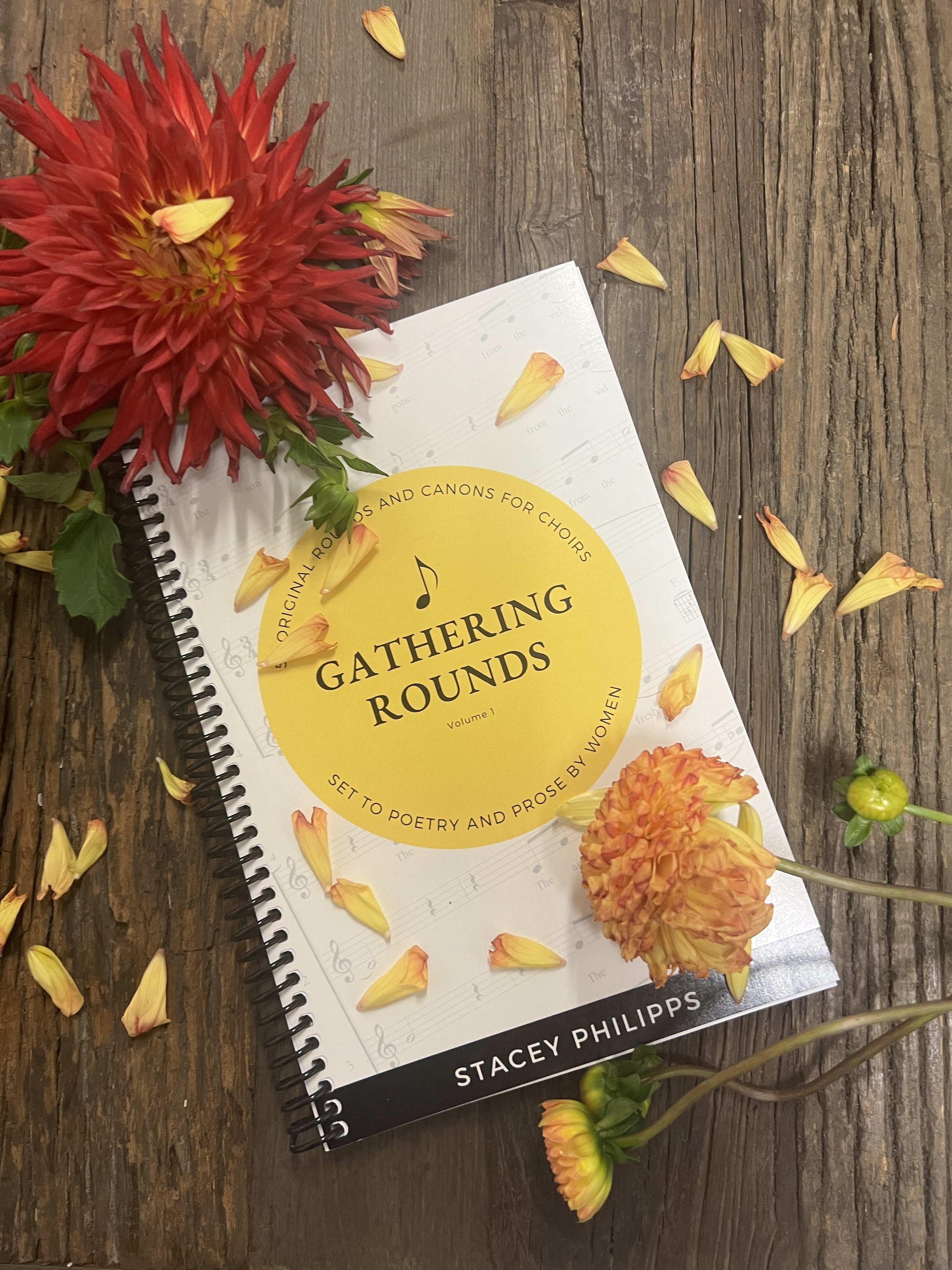Artist Spotlight: Meet Stacey Philipps
LISTEN, both the album and the concert, includes innovative commissions and regional premieres by world-class composers who have played pivotal roles in shaping who Resonance Ensemble is today.
Today we share our interview with Stacey Philipps, composer of “Witch Trial” who sat down with us to share a bit about the piece and herself.
Stacey is a Portland-based composer who has been a well-loved presence in the choral community for many years. Both a new music and early music devotée, she writes music to explore human experiences, lean into dissonance, and share vibrations with those on the stage and in the audience.
Stacey shares about her work Witch Trial, which will be featured on our upcoming program, LISTEN, as well as our debut album of the same name.
From a rehearsal of “Witch Trial” at the Historic Alberta House (2022).
How did you become involved with Resonance Ensemble?
I’ve been a Resonance audience member since concert one as an avid fan of Kathy FitzGibbon and her wonderful programming and singers. She’s put my music on the stage several times – always a total delight, as the performances have been stellar. I’m such a fan of this ensemble, and especially of the work they’re doing now, that I joined the board last fall.
Soprano soloist Emma Rose Lynn introduces “Witch Trial” and its meaning to Resonance listeners at the 2022 We Dissent concert.
For Witch Trial, what drew you to this text?
News articles describing modern-day witch hunts just a few years ago in South Africa, Somalia, and Papua New Guinea, the persistence of hate crimes in the world, and then the voices of women I found in trial transcripts from the Salem Witch Trials from which I gathered inspiration for the text.
In setting the text, what did you feel was the most important thing for the listener to understand?
The unbelievable emotional journey of the wrongly accused, from declamatory and forthright to plaintive to accepting to beatific – even bestowing blessings on her accusers! Equally important to notice are the righteous and somewhat panicked voices of the crowd of accusers who vehemently coalesce around their notion of justice and won’t let it go. Always astonishing how history repeats.
What do you love about the process of composing?
I love it all: the gathering phase – researching, brainstorming, sketching – the creative phase – the puzzle of putting all the elements together, layering meaning, and finding where to lean musically into emotional elements – the refining phase of ruthless editing and clarifying, and the collaborative phase of hearing performers make audible what was in my mind. It’s still magical every time.
Why is music important to you?
I was steeped in music from my earliest memories on – studying piano and voice and singing in choir and as a soloist – but then left it to study philosophy in college. I returned to music in a serious way a number of years later, and while part of me wishes that I had continued down this path earlier, I don’t regret the diversions (philosophy’s distracting) and I’m incredibly grateful to be back with it now.
Music is important to me because of its power to underscore and even reach beyond the human experience – to express, connect, surprise, provoke, question, thrill, comfort, and more. Honestly, its complexity is just incredibly interesting to me on so many levels (I also love theory!). All this is to say that I think I appreciate it even more for having taken the long way here.
Stacey reacts to Resonance’s performance of her work at We Dissent (2022).
So what’s coming up next for you?
I have another choral song called “Close Distancing” – written during the pandemic but with a longer reach into universal experiences of loss and connection. It’s also being released in October on a new album by the Oregon Repertory Singers, with whom I sing in the alto section.
I’m also in the thick of writing volume two of my book of Gathering Rounds – 52 rounds and canons set to texts by female-identifying poets and writers (ladies, send me your short poems for consideration!). Volume one is for experienced singers for sight-reading, performances, and fun, and this new book will add a special focus on skill-building for middle and high school singers.
Anything else to share?
Very special thanks to Resonance for all the gorgeous singing and remarkable programming over the years and on this album! It’s an honor to have my music included.
Composer Stacey Philipps and Artistic Director Katherine FitzGibbon outside the Historic Alberta House.
Are you ready to LISTEN ?
CHECK OUT OUR LIVE PERFORMANCES
There’s still time to get tickets to LISTEN - the live performance of our debut album! Click here to learn more about the live performances.
HEAR OUR DEBUT ALBUM!
You can hear Stacey Philipps’s work, Witch Trial, alongside other powerful works by living composers on debut album LISTEN. Click here to learn more about the album and to order your copy today!
unless otherwise noted, all photos in this post are by Rachel Hadiashar







